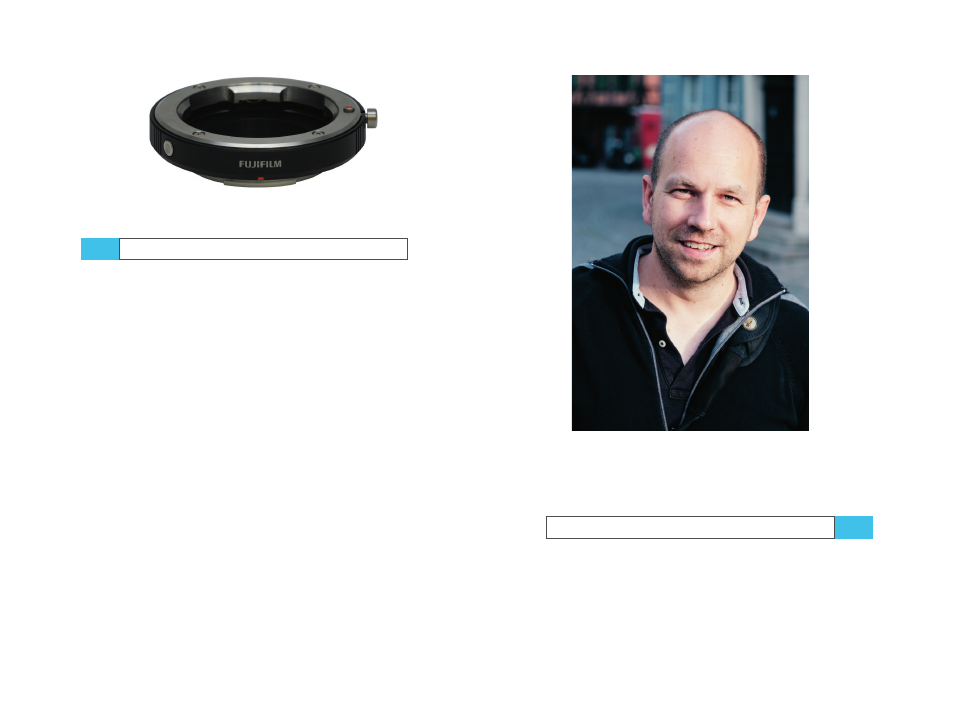Fuji-x-pro2_190-191 – FujiFilm X-Pro2 User Manual
Page 41

190
Using the Fujifilm X-Pro2
Using Adapted Lenses
191
Fig. 70:
Fujifilm’s own
M-mount adapter features electronic con-
tacts and a function button that opens the camera’s adapter menu
Quality considerations
Pixel peeping is en vogue, but many classic lenses rooted
in the area of analog film weren’t made for high-resolution
digital sensors. While some very expensive Leica lenses may
be outright disappointing when used on an X-Pro2, some
really cheap old lenses can deliver excellent results.
How can we explain that?
The lens design plays a major role. Some compact lenses
(typically for M-mount cameras) feature a symmetrical de-
sign that tends to be more problematic with digital sensors
than telecentric SLR designs.
Also note that most adapted lenses are intended for full-
frame [70] cameras. Attached to an X-Pro2 with its smaller
APS-C [71] sensor (23,7×15,6 mm), the format of the lens is
cropped. If you could extend the size of Fuji’s older 16MP
APS-C sensor to full-frame (36×24mm), its resolution would
be 36 megapixels, just like the Nikon D810 or Sony’s A7r.
Obviously, there aren’t many older full-frame lenses that
can actually use this kind of resolution. Instead, many older
lenses offer something else: character. Because maximum
sharpness and resolution weren’t as important then as they
are today, the designers of legacy lenses could put their
priorities elsewhere, for example by designing lenses that
provide outstanding bokeh [72].
TIP 112
Fig. 71:
Good legacy lenses don’t have to be expensive: this shot
was taken with a Russian
Helios 44M-4, a 58mmF2 lens with an
M42 screw-mount. You can often find this lens online for less than
25 dollars. In fact, the Novoflex adapter to attach the lens to the
camera cost me much more than that.
Speed Booster: miracle or trick?
Speed Booster and Speed Booster Ultra from Metabones are
very special adapters. They convert the focal lengths of full-
frame lenses to their APS-C equivalents. This means that the
adapted lens covers the same angle of view on your X-Pro2
as it would on a full-frame camera.
TIP 113
